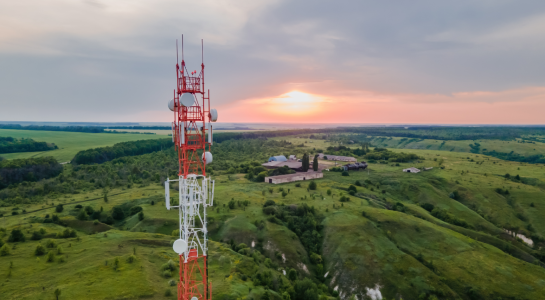3G network shutdown might trick you into buying obsolete devices!
By
Gian T
- Replies 2
As we embrace the rapid advancements in technology, it's easy to get caught up in the excitement of snagging a bargain online.
However, a recent discovery has raised red flags for Australian consumers, particularly those who are budget-conscious and may be tempted by 'budget-friendly' phones offered by online retailers.
Unfortunately, the nationwide shutdown of 3G networks has rendered these devices obsolete.
The shift away from 3G is part of a broader strategy by telecommunications giants such as Telstra, Optus, and TPG Telecom/Vodafone to enhance the speed, capability, and reliability of their 4G and 5G networks.
While this move is a leap forward for network performance, it has left approximately 60,000 older phones, including 4G-enabled models that rely on 3G, specific 3G-only devices, and imported 'grey-market' phones, in the lurch.
These devices can now not perform essential functions like calling, sending texts, or contacting emergency services.
The situation has become so concerning that WA’s Consumer Protection has received several complaints from consumers who have collectively spent around $4600 on these now-useless devices, some purchased just two months before the shutdown.
Consumer Protection Commissioner Trish Blake anticipates an influx of further complaints as more people realise their phones are no longer operational.
Blake warned, 'We’ve discovered that some online retailers in Australia still sell outdated phones that soon won’t function on Australia’s newer 4G and 5G networks.
These obsolete phones will leave buyers unable to communicate, including during critical situations when calling triple-0.
This is essential because they are designed to support only some of the Australian mobile frequency bands.'
Retailers selling these incompatible devices may violate the Australian Consumer Law, which mandates that products must be of acceptable quality and fit for their intended purpose.
Blake urged consumers to exercise caution when purchasing refurbished phones and to ensure they buy Australian models compatible with current networks.
If you own an old phone affected by the 3G phase-out, do not sell it or pass it on, as doing so could mislead others into thinking it's still functional.
Telcos have been preparing their customers for the 3G network closures since 2019, advising them to upgrade their technology and offering handset replacement options. Some telcos have even provided free devices to vulnerable community members.
To check if their phone is affected by the shutdown, Australians can text '3' to the number 3498.
The shutdown also affects certain older devices, such as smartwatches and emergency medical alarms.
 Have you or someone you know been impacted by the 3G network shutdown? What steps have you taken to ensure your devices remain functional? Let us know in the comments below.
Have you or someone you know been impacted by the 3G network shutdown? What steps have you taken to ensure your devices remain functional? Let us know in the comments below.
However, a recent discovery has raised red flags for Australian consumers, particularly those who are budget-conscious and may be tempted by 'budget-friendly' phones offered by online retailers.
Unfortunately, the nationwide shutdown of 3G networks has rendered these devices obsolete.
The shift away from 3G is part of a broader strategy by telecommunications giants such as Telstra, Optus, and TPG Telecom/Vodafone to enhance the speed, capability, and reliability of their 4G and 5G networks.
While this move is a leap forward for network performance, it has left approximately 60,000 older phones, including 4G-enabled models that rely on 3G, specific 3G-only devices, and imported 'grey-market' phones, in the lurch.
These devices can now not perform essential functions like calling, sending texts, or contacting emergency services.
The situation has become so concerning that WA’s Consumer Protection has received several complaints from consumers who have collectively spent around $4600 on these now-useless devices, some purchased just two months before the shutdown.
Consumer Protection Commissioner Trish Blake anticipates an influx of further complaints as more people realise their phones are no longer operational.
Blake warned, 'We’ve discovered that some online retailers in Australia still sell outdated phones that soon won’t function on Australia’s newer 4G and 5G networks.
These obsolete phones will leave buyers unable to communicate, including during critical situations when calling triple-0.
This is essential because they are designed to support only some of the Australian mobile frequency bands.'
Retailers selling these incompatible devices may violate the Australian Consumer Law, which mandates that products must be of acceptable quality and fit for their intended purpose.
Blake urged consumers to exercise caution when purchasing refurbished phones and to ensure they buy Australian models compatible with current networks.
If you own an old phone affected by the 3G phase-out, do not sell it or pass it on, as doing so could mislead others into thinking it's still functional.
Telcos have been preparing their customers for the 3G network closures since 2019, advising them to upgrade their technology and offering handset replacement options. Some telcos have even provided free devices to vulnerable community members.
To check if their phone is affected by the shutdown, Australians can text '3' to the number 3498.
The shutdown also affects certain older devices, such as smartwatches and emergency medical alarms.
Key Takeaways
- Online retailers in Australia have been caught selling outdated phones that will not work following the shutdown of 3G networks by Telstra, Optus, and TPG Telecom/Vodafone.
- Consumer Protection Commissioner Trish Blake warns that buying these obsolete phones may breach the Australian Consumer Law as they are unfit for purpose.
- Those affected by the shutdown include users of older 4G phones, 3G-only devices, and grey-market imports incompatible with Australian mobile frequencies.
- Telcos have prepped customers for the 3G network phase-out since 2019, offering handset replacement options and free devices for vulnerable community members.








